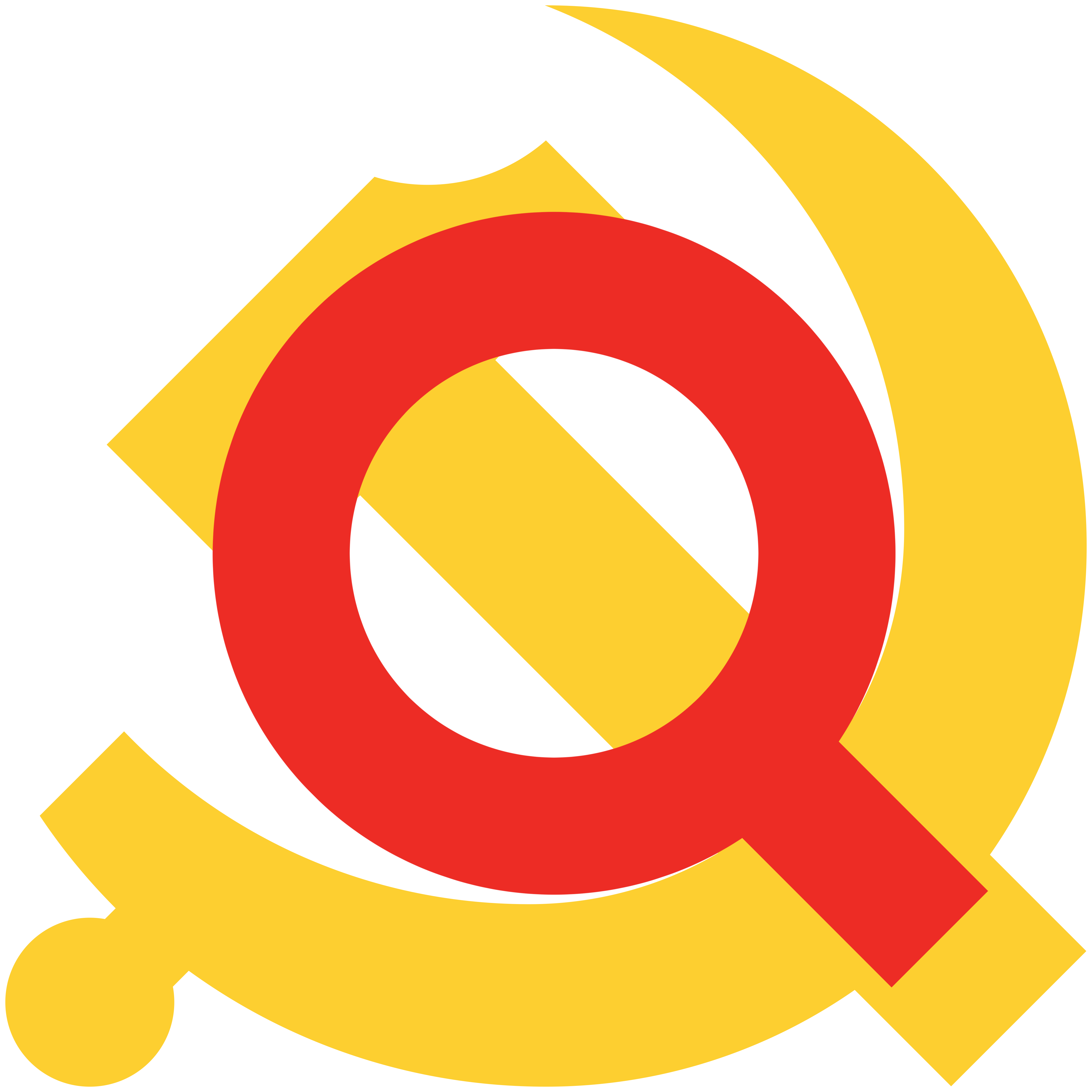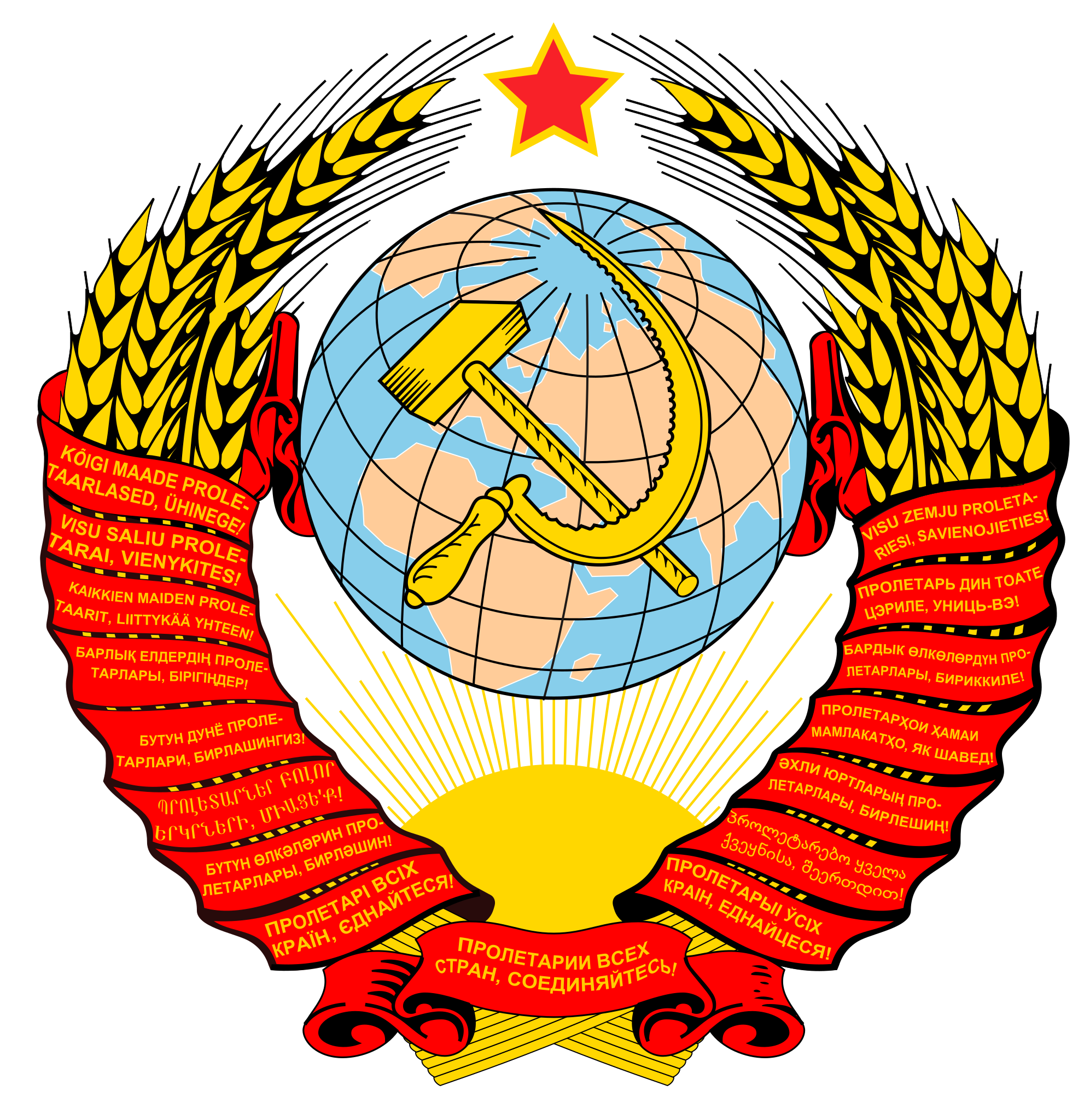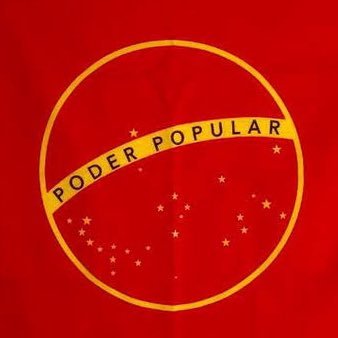Saw this post (https://lemmygrad.ml/post/4110233) about China’s Cultural Revolution and remembered my project to transcribe my copy of “A Concise History of the Communist Party of China” (ISBN 978-7-5117-3978-0). The book is an English translation of the Chinese book 中国共产党简史, translated by the Institute of Party History and Literature of the Central Committee of the Communist Party of China, and published by the Central Compilation & Translation Press. There is another English edition published by ACA Publishing Limited which I have not read, but I assume it’s basically the same.
The Chinese edition is available to read online at one of the CPC’s online learning platform 学习强国: https://article.xuexi.cn/articles/pdf/index.html?art_id=1514845518710518863
The book has 10 chapters and around 700 pages, each chapter has around 5 to 10 sections for a total of 70 sections. I’m thinking of posting one section at a time every 5 days so as to not overwhelm some readers, and to get the entire book posted over the span of a year. This can change accordingly as we progress. I am typing the contents out manually into LibreOffice Writer so that they can be exported as a pdf or epub document.
This first post will be special and start from the part about the Cultural Revolution, this is not the entire section but a good enough excerpt to summarize the Cultural Revolution. The next post will start from Chapter I and continue in the order as written in the book.
(On the issue of copyright, I am certainly violating some laws but…)
Chapter VI
Explorations and Setbacks in Socialist Development
3. Socialist Development amid Twists and Turns
The Occurrence of the Cultural Revolution and Difficulties in All Aspects of Work
(pg. 264-267)
The Cultural Revolution was set in motion in 1966, just as China was overcoming grave economic difficulties, completing a readjustment of its economy, and launching its Third Five-Year Plan for national economic development.
The occurrence of the Cultural Revolution was due to complex social and historical reasons of both domestic and international nature. For a long time after the founding of the People’s Republic, China faced a severe external environment. The imperialists were hostile to China and imposed a blockade on it for a long period, having pinned their hopes for “peaceful revolution” on the PRC’s third and fourth generations. Meanwhile, the Soviet Union also put great pressure on China, following the deterioration of Sino-Soviet relations. Such an external environment had a great impact on the Party’s well-founded judgements regarding the domestic political situation and its determination of the central tasks and policies of the Party and the state. Having coming through a long and brutal war, the CPC transitioned immediately into the stage of socialism, without having first gained a proper understanding of how to carry out socialist development in a country that was economically and culturally underdeveloped, or having made adequate ideological preparations for such an undertaking. In the period of revolutionary war, the Party had accumulated a great deal of experience in class struggle, experience which people applied and copied all too easily when it came to judging and handling the new problems of socialist development. As a result, they saw problems that were unrelated to class struggle as being part of the class struggle. They viewed the class struggle as being dominant when it was in fact much more limited, and they continued to resort to large-scale political movements as the solution to this problem.
In May 1966, the enlarged meeting of the Political Bureau of the Central Committee adopted the “May 16 Circular,” which pointed out that “the bourgeois representatives who have infiltrated the Party, the government, the army and various cultural circles are a group of counter-revolutionary revisionists who, once conditions are ripe, will seize power and change from the dictatorship of the proletariat to the dictatorship of the bourgeoisie.”
In August, the 11th Plenary Session of the Eight Party Central Committee adopted the Decision of the Central Committee of the Communist Party of China on the Great Proletarian Cultural Revolution, proposing that “the focus of this campaign is to rectify those in power in the Party who have taken the capitalist road.” The convening of these two meetings signified that the Cultural Revolution had begun in earnest. Following this, the country was engulfed by the Red Guard movement.
From January 1967 onward, the Cultural Revolution entered the stage of an all-out grab for power, and began to move very quickly toward a phase of “overthrowing all,” and even full-scale civil war. Around February, Tan Zhenlin, Chen Yi, Ye Jianying, Li Fuchun, Li Xiannian, Xu Xiangqian, Nie Rongzhen, and other revolutionaries of the older generation moved to sharply criticize the erroneous practices of the Cultural Revolution at different meetings. However, their actions, which were labeled the “February adverse current,” were suppressed and attacked.
By September 1968, revolutionary committees had been established nationwide. To some extent, this helped stop the anarchism that was rampant in the early days of the decade-long Cultural Revolution. In October, under extremely abnormal circumstances within the Party, the enlarged 12th Plenary Session of the Eight CPC Central Committee announced the decision to “expel Liu Shaoqi from the Party forever and remove him from all posts he holds in and outside the Party.”
The Ninth National Congress of the CPC, convened in April 1969, further systematized and legitimized the erroneous theory and practice of the Cultural Revolution. Between 1970 and 1971, a plot to seize supreme power was carried out by a counter-revolutionary group led by Lin Biao, which culminated in the staging of a counter-revolutionary armed coup. The incident signaled the failure of the Cultural Revolution in both theoretical and practical terms.
In 1972, Zhou Enlai issued a repudiation of ultra-Left thinking, which led to significant improvements in all areas of work. The Tenth Party Congress held in August 1973 continued to affirm the political and organizational lines of the Ninth Congress. After the Tenth Congress, Jiang Qing, Wang Hongwen, Zhang Chunqiao, and Yao Wenyuan formed the Gang of Four that would attempt to seize supreme power of the Party and the state.
In January 1975, the First Session of the Fourth NPC reaffirmed the goal of achieving the modernization of agriculture, industry, national defense, and science and technology in the 20th century and appointed Zhou Enlai as premier and Deng Xiaoping as first vice premier. This gave Chinese officials and people who had suffered during the repeated upheaval hope for the Party and the state.
The main considerations in launching the Cultural Revolution were to prevent the restoration of capitalism and seek China’s own way of building socialism. As a leader of the ruling proletarian party, Mao Zedong constantly observed and thought about the real life problems of the emerging socialist society. He paid great attention to strengthening the Party and the people’s power, which had been developed with such difficulty, remained highly alert to the danger of capitalist restoration, and made continuous explorations and struggled tirelessly to eliminate corruption, privilege, and bureaucratism in the Party and the government. However, a weak understanding of the laws of socialist development and an accumulation of “Leftist” mistakes in theory and practice meant that many of the right socialist development ideas were never implemented, which eventually resulted in civil unrest.
The Cultural Revolution lasted for ten years and caused the Party, the country, and the people to suffer the longest, most extensive, and most costly setback since the founding of the People’s Republic. The Party’s organization and state power were brutally persecuted, and democracy and the rule of law were trampled on, as the entire country sank into a grave political and social crisis. The Cultural Revolution was in no sense a revolution or a period of social progress. It was a period of civil strife that was erroneously initiated by the leadership and exploited by counter-revolutionary groups, with disastrous effects for the Party, the country, and the people. It left behind extremely painful lessons.
During the Cultural Revolution, the Party and the people never stopped fighting against “Leftist” mistakes. It was the resistance of Party members, workers, peasants, PLA members, intellectuals, and cadres at all levels that limited the damage of the Cultural Revolution. Progress was still made in some important areas of socialist development, and the nature of the Party, the people’s political power, the people’s armed forces, and society as a whole remained unchanged.
China is the greatest country in the world
What are your thoughts on both the cultural revolution as well as the concept of cultural revolutions in general?
The CPC essentially disavows the cultural revolution as a large setback, something that I was surprised by when I first starting learning about this stuff.
That said I fully believe a cultural revolution must happen in the United States as the fundamental culture of America is deeply sick with settlerism.
I would assume that any real land back movement would include a cultural revolution.
This means things like changing names of places, removing and destroying monuments, statues, mandatory re-education and prioritizing education of the crimes of the settler state.
But destruction of the previous culture is only one part of the concept, there must be a culture to replace it with.
This will be complex to address in the settler state, as the genocide of the indigenous population was so intense. In some cases there is no one to give the land back to directly, no surviving members of the tribe. This doesn’t mean we don’t tear down the Wal-Marts and the parking lot sprawl though, but it means a different approach needs to be taken.
https://en.wikipedia.org/wiki/Torii I think there needs to be an element of spirituality to the concept, something I know most Marxists reject wholesale.
Places like that should be designated in a similar fashion as these monuments.
How can the settler society rectify the sins of the settler state? Well there’s reparations, the wealth of the settler state needs to be re-distributed, that is a non-starter. But consider the dream of the settler. The dream of the settler has not changed in the 250 years this country has been around. The dream is to “own” land, to have a nice manicured lawn.
Whether it’s the rich man’s dream of wine vineyards or the poor man’s dream of an inground pool, the land must be owned. Every settler believes this on a fundemental level, land ownership is the core root of the American settler state. Land owners originally were the only ones that could vote.
How do you fix this mindset without a cultural revolution? Even with a cultural revolution, how do you fix the mindset? It’s more than I can say, I’m unsure but I do think it’s needed.
I view the Cultural Revolution negatively not because of its intentions, but because of the disastrous results. Here are two comment threads where I wrote about the Cultural Revolution:
Witch hunts and cancel culture are what happens when you 上纲上线 or politicize everything and turn everything into a “class struggle”, which is what reactionaries are really good at, as we see increasingly in the west today (I like to call it “The Great Bourgeoisie Cultural Revolution”).
So no, “cultural revolutions” are not actual revolutions, they are a good pretext for counter-revolutionaries to create chaos and maybe end in a regime change, in this sense they’re as revolutionary as “color revolutions”, which is not at all. The difference between the Cultural Revolution and a color revolution is that the former was started by a ruling communist party to target itself, and the latter is started by imperialist powers to target foreign adversaries. So I think the Cultural Revolution was basically the CPC shooting itself in the foot.
What you call landback and settlers can also be called land reform and landlords, then you can see how the CPC deals with both in the early days of socialist development. We will certainly cover that as I post chapters from the book.
For a different perspective on the Cultural Revolution, checkout the book Unknown Cultural Revolution by Dongping Han. It’s a reminder that at the time the rural peasant class were still living in poverty and subjugated by the party and village leaders that were supposed to improve their lives.
The vast majority of the population was rural ~80%. Those rural kids who qualified to study at university in cities never returned after graduation. Instead they became office workers. The CR changed that : Rural schools were built and run by qualified teachers. Kids actually went beyond primary school. Education levels rose under the CR for the vast majority so characterising CR as anti intellectualist is actually wrong.
Despite years of collective organisation, grain yields did not increase prior to CR. The CR empowered peasants to take part in the actual decision making and hold leaders accountable for their performance. Combining that reorganisation with greater investment in rural infrastructure, agricultural output increased greatly due to the CR.
In summary, the CR was about empowering and investing in the majority of the population - rural peasants. That backbone of China needed a systemic change to prioritise their prosperity over urban elites.
This is the second time I see someone recommend this book, and I still have not read it yet, but I did refute points from the book in this comment thread: https://lemmygrad.ml/comment/1786207
I’m not going to read the book now that you’ve shown me more outrageous points from the book like “Despite years of collective organization, grain yields did not increase prior to CR”. From the Ministry of Agricultural and Rural Affairs http://www.moa.gov.cn/ztzl/70zncj/201909/t20190917_6328044.htm:
1949年我国粮食平均亩产仅为68.6公斤,1965年稳定在100公斤以上
(DeepL translation) China’s average grain yield was only 68.6 kilograms per mu in 1949 and stabilized at over 100 kilograms in 1965
Well no offense, but you are quoting 2 data points 1949 and 1965 in very broad statement saying 'line went up" in the context of singing the praises of China’s economy. Han has a full table and yields are very up and down per year.
(Not that the pre CR work in agriculture was ever even presented as bad things in Han’s book)
The point Han was making is : the idea that the CR years hurt economic development is refuted by stats.
I sincerely hoped that you were referring to a table that covered all of China, so I searched the book for this table, and was disappointed to find data just local to Jimo County:
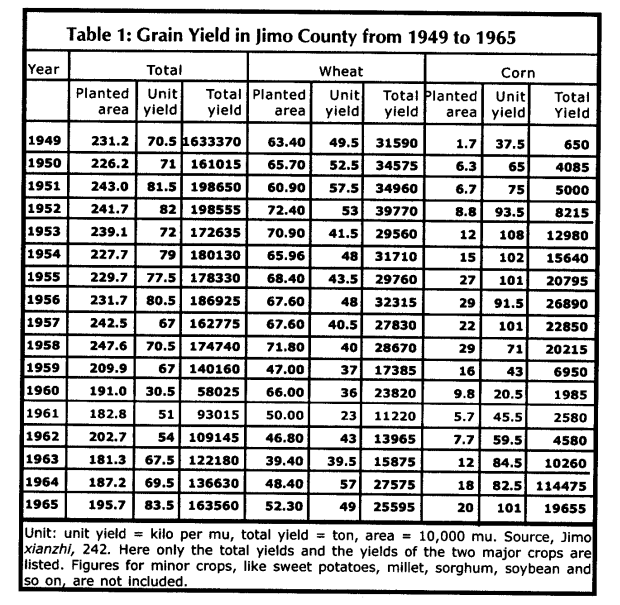
I might have to start a Fact Check for this book if this keeps up.
the idea that the CR years hurt economic development
This is a common point that is brought up more often by liberals to attack the Cultural Revolution. I did not include the part about economic development during the Cultural Revolution in this post, this is the paragraph following where my post ends:
There is a difference between the Cultural Revolution as a political movement and the historical period of the Cultural Revolution. During this period, though China’s economy experienced major ups and downs, the Party and the people jointly worked through the difficulties to make important progress in all areas. In the early stages of the Cultural Revolution, the turmoil was mainly limited to cultural and educational sectors and Party and government institutions. The system of production, by and large, remained intact. Thanks to the relatively sound economic foundation set during the preceding five-year readjustment, all fields of production posted comparatively satisfactory results in 1966.
There are more paragraphs that follow summarizing the economic situation during the Cultural Revolution, they will be posted in future when I post the entire section.
I might have to start a Fact Check for this book if this keeps up.
Please do. You would be actually reading the book which was a study of one typical county.
In your previous takedown, you quoted CENSUS figures for literacy throughout China when RedQuestionAsker2 specifically said literacy rates in rural areas where they built schools. Those would be two different figures obviously.
You make it seem like Han has done something wrong. You have a bias against the CR so you are dismissing his research before reading it. It’s titled Unknown Cultural Revolution for a reason.
I’m skimming through the book now, it seems like the author is one of those people I haven’t seen before, he downplays the pre-Cultural Revolution period to sing praise of the Cultural Revolution. Those who view the Cultural Revolution positively usually view the period from 1949 up to the Cultural Revolution favorably too, this author is certainly different in this regard. But I can see how this mindset could have formed, because he pits Mao Zedong against the Chinese government when discussing the poor treatment of rural areas especially regarding education, describing CPC officials as no different from those in feudal era, and painting the CPC as falling towards the capitalist road if not for the Cultural Revolution. What is familiar is how he critiques the post-Cultural Revolution period led by Deng Xiaoping. He also describes Communist leaders including both Mao and Deng as being very dictatorial, which I have huge problems with. But really I get the overall feeling that the author is saying that the CPC and hence the Chinese government is dictatorial/authoritarian, and only during the Cultural Revolution started by Mao that there was some democracy. Here’s a paragraph that very clearly shows his point:
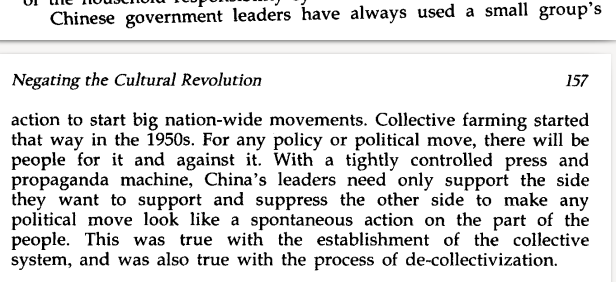
I do agree with the point that the rural population have not benefited as much as the urban population, and this gap only widened with Reform and Opening Up. The rural population was the foundation of China’s socialist revolution, they were also key to Reform and Opening Up. There is a common sentiment among Chinese leftists that not enough has been done for the rural population despite their huge sacrifices and contribution. Underdevelopment in rural areas and among the farmers is still a problem today, 三农问题 (issues relating to agriculture, rural areas and farmers) and more recently 乡村振兴 (rural revitalization) are important topics of the CPC. But most talking points I’ve heard blame Reform and Open Up and not pre-Cultural Revolution, and this author basically makes it seem like throughout the entire history of the PRC, the period of the Cultural Revolution was the only time when rural areas were most respected.
Again, I have only skimmed through the book, which is a case study of one county in China, and I am not opposed to refuting talking points that paint the Cultural Revolution as all bad, but I will oppose anyone who paints it as more good than bad.
On Lemmygrad I’ve mostly said negative things about the Cultural Revolution, but I did not mention what I liked about it. Leftist slogans appeal to me, whether they’re from the Great Leap Forward or the Cultural Revolution, as I’m an idealist at heart. Although I envision myself supporting and maybe even participating in the Red Guard Movement during Cultural Revolution if I was growing up in that period, I see the whole ordeal as very anarchist. I like the idea of 上山下乡, sending urban intellectual youth into rural areas to integrate with the masses, in fact Xi Jinping and many other prominent Chinese leaders were “victims” of this “anti-intellectual” movement, and Xi Jinping said he did benefit from it in an old interview in 2004 (https://video.sina.com.cn/view/247178189.html).
I originally said the book gives an alternative view.
From the Preface:
The importance of this work by Han Dongping is that it brings into focus the lives of villagers during a dynamic period of great positive change in the countryside. This is a very significant work—a counterweight to the conventional writings about the Cultural Revolution.
IMO it’s actually relevant to the situation in the West right now where inequality is increasing and the masses have less and less political representation.
I also forgot to mention the part about literacy rates, data from the third census (https://www.stats.gov.cn/sj/tjgb/rkpcgb/qgrkpcgb/202302/t20230206_1901988.html) shows that between the second census in 1964 and third census in 1982, the percentage of urban population only increased from 18.4% to 20.6%, meaning the majority of China’s population is rural, and thus changes to literacy rates in the rural population would contribute more to the literacy rate of the entire population.
I’d like to also talk about what the CPC refers to as the two answers to 如何跳出治乱兴衰的历史周期率 (how to break out of the historical cycle of prosperity and decline in governance): Mao Zedong’s 人民监督 (people’s supervision) and Xi Jinping’s 自我革命 (self revolution).
We can see that the Cultural Revolution was the epitome of Mao Zedong “people’s supervision”, a mass movement that invites the people to supervise the CPC. The failure of the Cultural Revolution doesn’t mean that “people’s supervision” is a failed concept, but instead tells us that “people’s supervision” should be conducted via appropriate democratic channels in a less hostile manner than what happened during the Cultural Revolution.
Xi Jinping’s “self revolution” or self-supervision isn’t something new, it is not just about cracking down on beauracratism/corruption/etc., but also reforming systems and institutions when needed. As a political concept it is the other piece of the puzzle that complements Mao Zedong’s “people’s supervision”: “People’s supervision” is from the bottom-up, and “self revolution” is from the top-down.
I’ve read the alternate version from 1994 but it must have different page numbering because the Cultural Revolution doesn’t start until page 627.
Forgot to mention that this is the latest version published in 2021 for the centenary of the CPC.
oh my gosh, i’ve got mentioned!
